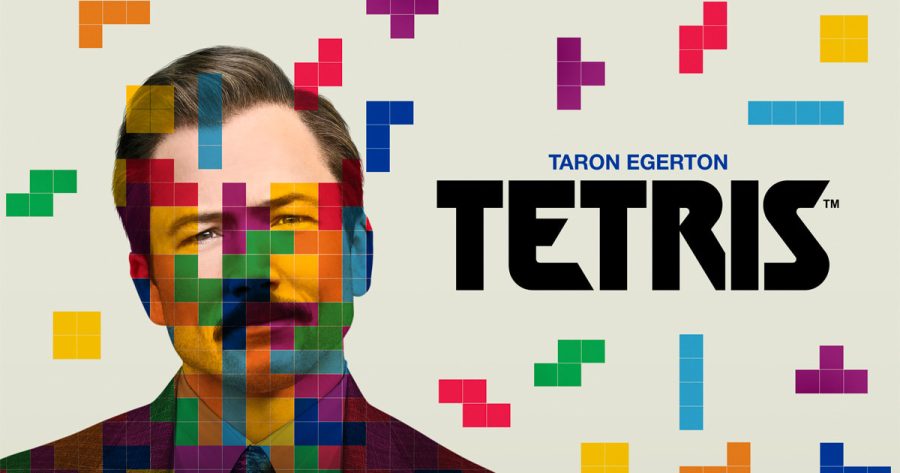Apple TV’s “Tetris” retells story of the troubled history behind game’s development
Taron Egerton stars in Apple TV series “Tetris”
May 4, 2023
While countless people have played the iconic falling block puzzle game Tetris, fewer know the true story behind how the game got into the hands of players around the world. Tetris’ leadup to becoming a widespread hit in the late 1980s is a story filled with corporate backstabbing and political entanglement and the Apple TV original film “Tetris” aims to showcase the turbulent history of the fight for the game’s legal distribution rights. While the actual truth of the story may be overly exaggerated in certain areas, “Tetris” is an engaging ride that puts the game in a completely different perspective.
“Tetris” follows Taron Egerton as Henk Rogers, an enterprising video game developer who after discovering Tetris at an electronics trade show, goes to Nintendo to propose a joint partnership to obtain the rights to distribute Tetris on their home consoles. With Tetris being created in Russia, Rogers travels with virtually no support to the Soviet Union during the Cold War to meet the inventor of the game Alexey Pajitnov (Nikita Efremov) only to find that the legal rights to his own creation don’t belong to him but rather the USSR itself. With other companies from across the globe underhandedly rushing to get the rights to Tetris for themselves, Rogers works to fight his way to being able to distribute the game to a worldwide market.
While “Tetris” may initially feel overplayed with its video game aesthetic as it establishes and sets up its premise, the film becomes aggressively engaging as it dives into the political and legal battle at the core of its story. The film takes several cues from courtroom dramas to amplify the drama between the variety of different companies and parties involved. The movie helps ease viewers into the intricate legal nuances behind the situation, and the combination of political unrest within the USSR at the time makes for moments of upheaval that will leave viewers on the edge of their seats. Egerton and Pajitnov’s performances are highlights as they excellently portray the growth of two men who initially don’t see eye to eye and have their own self-interests to eventually genuinely caring about each other and their work over the course of the film. Seeing how the actual creator of the game owned virtually nothing about his project and could not benefit from it at all due to his government completely changes the perspective toward the game itself. As with many biographical retellings, the events of the film aren’t entirely accurate to the real-life scenarios and the film occasionally has extreme moments that obviously didn’t actually occur but work in service to drive up the drama and suspense of the story.
“Tetris” manages to capture the feel of it’s story’s time period while also giving it a unique aesthetical feel as well. Scenes where characters debate within corporate offices are portrayed with color palettes consisting of dry browns and muted whites with the cast all donning attire to replicate the feel 1980s business culture. The settings within Russia are portrayed with cold, dark lighting to and scenes such as these are contrasted by others where characters are able to genuinely connect with each other with warm, nostalgic lighting.
While it’s creative liberties may not accurately retell the story in its entirety, “Tetris” is a thoroughly engaging biopic on the history of the classic game and its creators.








